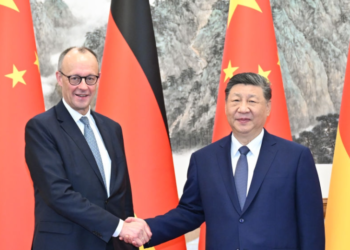By Arno Maierbrugger
Bangkok: Islamic finance is expected to take off in Pakistan in the coming years due to new regulations on Shariah-compliant banking, newly launched industry-supporting regulatory bodies, as well as rising demand from foreign investors and the large unbanked Muslim population, experts suggest.
According to the Global Islamic Finance Report, a renowned yearbook published in the UK, which ranks about 50 countries globally with regards to their role and position in the Islamic financial services industry, growth of Islamic banking in Pakistan has been at a cumulated 30% in the last five years, which is above the average global growth rate of Islamic banking and finance. If this trend continues, it can be expected that by 2017, Islamic banking assets in the country reach a value of $17.6bn, the report suggests.
This trend is supported by the strategy of the State Bank of Pakistan which seeks to double the number of Islamic banking branches from currently about 1,200 in coming years and to increase the market share of Shariah-compliant banking to at least 15% from currently 10% before the end of the decade. Some domestic economists give Islamic banking even a potential of 20% market share in the mid-term which would make Pakistan an important player in the global Islamic finance industry — namely because the country is the second largest market for the industry globally given its population of 192mn, the second largest Muslim population worldwide behind Indonesia.
“Presently, the Islamic financial services industry of Pakistan consists of Islamic banks, microfinance banks, Islamic mutual funds, modaraba [Islamic asset management] institutions, takaful companies and Islamic Real Estate Investment Trusts,” says Muhammad Shoaib Ibrahim, CEO of Karachi-headquartered Islamic finance service provider First Habib Modaraba.
“The branch network of Islamic banks is continuously expanding throughout the country at a fast pace and catering to the demand for Shariah-compliant banking products,” he notes, adding that “the State Bank of Pakistan has played a leading role in further promoting and developing Islamic banking within the country on sound footings.”
Among the central bank’s actions were the introduction of the Shariah Governance Framework for Islamic Banking last year, which clarifies the roles and responsibilities of various units of Islamic banking institutions such as the board of directors, the executive management, the Shariah board and the Shariah compliance department. The central bank also announced the launch of a centre of excellence to groom highly-skilled staff the Islamic finance industry needs.
The Securities and Exchange Commission of Pakistan, which supervises all Islamic finance service providers other than banks, on its part set up a unit called Islamic Finance Department that regulates and oversees this Islamic capital market sector. The department’s support in product development and promotion of market awareness has helped reorganizing the Islamic capital market and has been a boost for Islamic finance service providers, Islamic finance products and market instruments.
“In particular, Islamic mutual funds, modaraba and takaful companies are growing very well and are contributing to the development of Islamic finance in the country,” says Ibrahim.
Microfinance has also experienced rapid growth in the recent past as scores of Pakistani households are turning to microfinance institutions providing interest-free loans based on Islamic law, with the majority of clients of microfinancing solutions being women.
On a larger scale, the Pakistani government has been stepping up its use of Shariah-compliant financing to fund infrastructure deals, mainly in energy and transport.
This April, Pakistani banks arranged a ten-year Islamic sukuk worth $955mn for a hydropower plant, the largest-ever energy deal using Islamic financing in the country so far. According to Pakistan’s Finance Minister Ishaq Dar, the country wants to make Islamic finance its “first choice” for infrastructure and long-term financing needs and shift up to 40% of its debt financing to Islamic sources from conventional ones. This includes domestic infrastructure projects worth $45bn planned by Pakistan’s government in partnership with China to establish the China-Pakistan Economic Corridor agreed between the two nations in 2014, the largest infrastructure programme for Pakistan to date.
Courtesy:Gulf Times


















